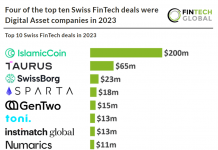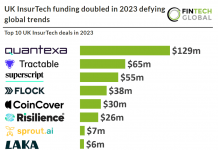The Bank of England (BoE) and the Bank of International Settlements (BIS), has successfully completed a collaborative project regarding CBDC.
Project Rosalind was envisioned to investigate the potential of a “universal and extensible API layer” in bridging central bank and private sector infrastructures, with a primary focus on facilitating retail CBDC payments. The initiative further endeavoured to cultivate an array of retail CBDC applications.
The Bank of England is responsible for promoting monetary stability and maintaining financial stability in the UK, while the BIS serves to build cooperation among central banks and as a bank for these entities. Together, they have explored an innovative interface in the world of FinTech, essentially transforming the way digital currencies can be integrated into private sector applications and central bank ledger designs.
According to both the BoE and the BIS, Project Rosalind has successfully demonstrated the effective application of a robust API layer. This layer has proven its compatibility with various private sector applications and central bank ledger designs, illustrating that a set of simple and standardised API functionalities could support an extensive range of use cases.
In its duration, the project has generated 33 API functionalities and scrutinised 30 retail CBDC cases, including peer-to-peer transfers, retail payments for goods and services, and small-value business transactions.
Francesca Hopwood Road, Head of the BIS Innovation Hub London Centre said, “Active collaboration with the public and private sectors to identify and explore these use cases has been at the heart of this. We believe that Rosalind can make a significant contribution to how organisations across the globe are thinking about and engaging with the design of retail CBDC systems.”
The Digital Currency Monetary Authority (DCMA) previously launched its CBDC which it claims it strengthens the monetary sovereignty of participating central banks.
Keep up with all the latest FinTech news here.
Copyright © 2023 FinTech Global











